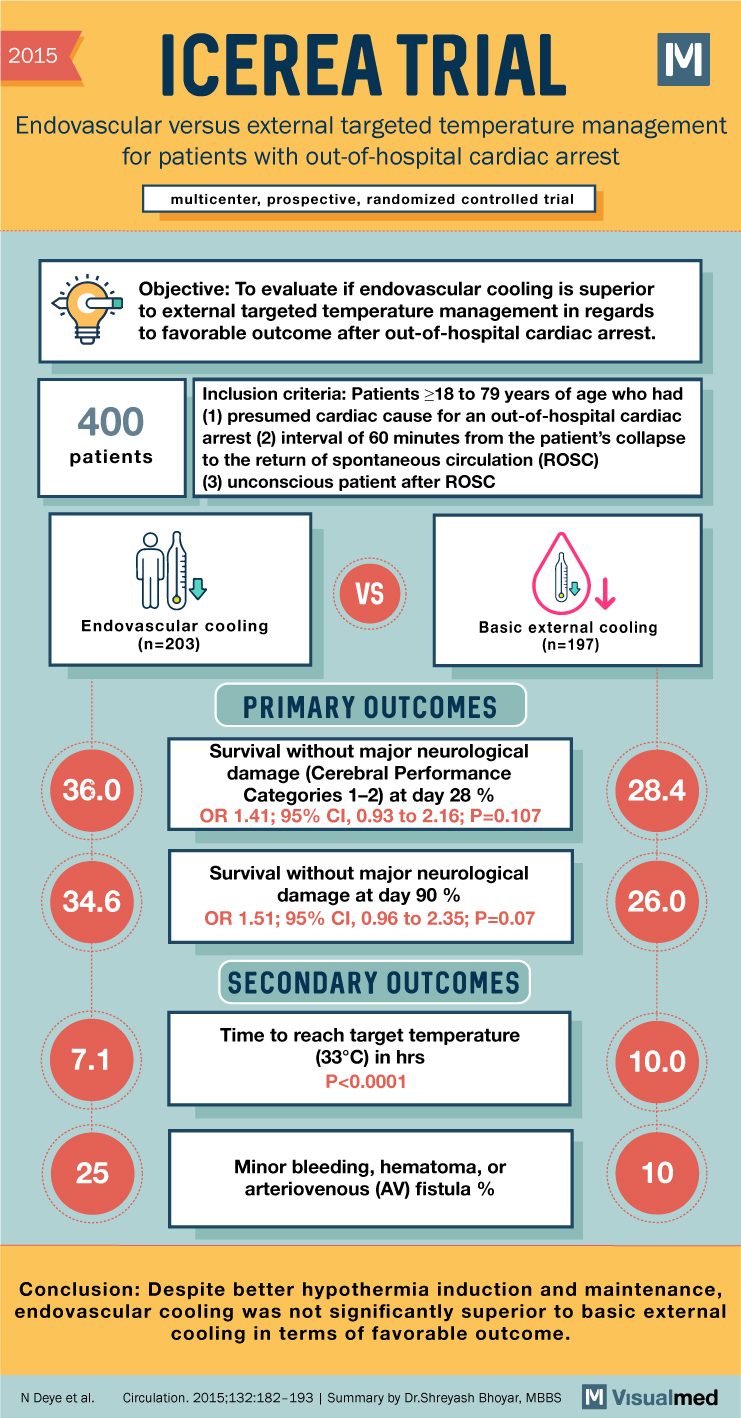
2015 ICEREA TRIAL Endovascular versus external targeted temperature management for patients with out-of-hospital cardiac arrest multicenter, prospective, randomized controlled trial Objective: To evaluate if endovascular cooling is superior to external targeted temperature management in regards to favorable outcome after out-of-hospital cardiac arrest. 2 400 Inclusion criteria: Patients >18 to 79 years of age who had (1) presumed cardiac cause for an out-of-hospital cardiac arrest (2) interval of 60 minutes from the patient’s collapse to the return of spontaneous circulation (ROSC) (3) unconscious patient after ROSC patients VS Endovascular cooling (n=203) Basic external cooling (n=197) PRIMARY OUTCOMES 36.0 Survival without major neurological damage (Cerebral Performance Categories 1-2) at day 28 % OR 1.41; 95% CI, 0.93 to 2.16; P=0.107 28.4 34.6 Survival without major neurological damage at day 90 % OR 1.51; 95% CI, 0.96 to 2.35; P=0.07 26.0 SECONDARY OUTCOMES Time to reach target temperature (33°C) in hrs P<0.0001 10.0 Minor bleeding, hematoma, or arteriovenous (AV) fistula % 10 Conclusion: Despite better hypothermia induction and maintenance, endovascular cooling was not significantly superior to basic external cooling in terms of favorable outcome. N Deye et al. Circulation. 2015;132:182-193